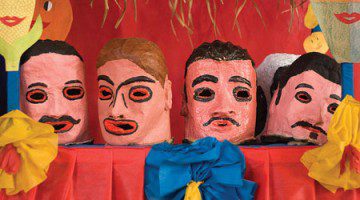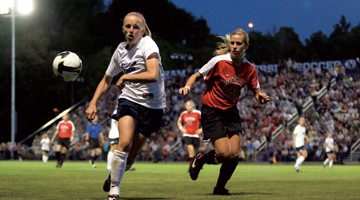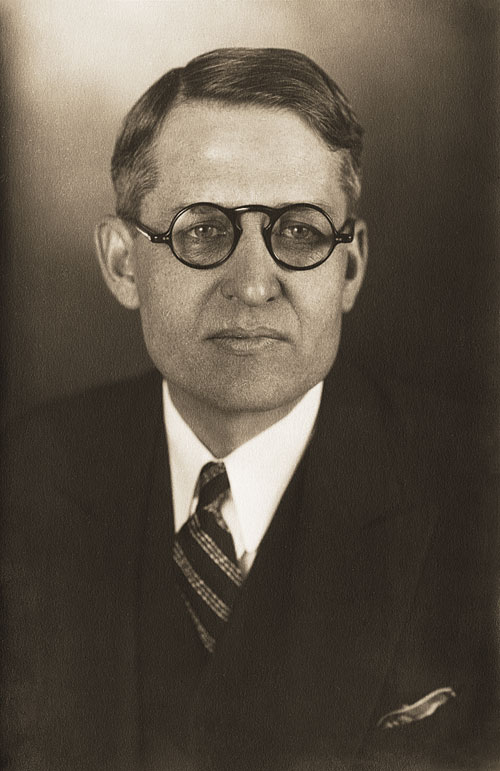By Peter B. Gardner, ’98
“Going forth” sometimes means real risks and long odds for success.
WHAT am I doing here? Through a feverish chill in the humid darkness of the rural Ghanaian hospital dormitory at midnight, the question seemed reasonable enough.
In December 1996, my older brother Ned C. Gardner, ’95, and I had come to the West African nation with two doctors and other volunteers, mostly students from BYU, to deliver medical supplies and perform surgeries on people ravaged by Buruli ulcer, a skin disease related to leprosy. Our goals were lofty—to perform scores of surgeries, educate villagers on the disease, and gather data in hopes of contributing to its eventual eradication.
Having been born into a family genetically encoded to want to save the world, I had felt the trip would be an epic realization of my dreams to make a difference. The exotic landscape, the foreign accents and customs, and the obvious need of those suffering from the disease all added to the adventure.
A week into the trip, other volunteers and I traveled to villages near the hospital in Agroyesum to examine villagers for ulcer symptoms and educate them on early intervention. After inspecting villagers’ limbs all day, I hadn’t seen even one case of the ulcer. What I had witnessed—everywhere I went—was utter poverty. Children ran the crude roads in tattered underwear, adults sold their gardens’ meager product at roadside stands, and most seemed more interested in the spectacle of white people than in what we had to say. As the day wore on, I began to feel outmatched. We might provide physical relief for a few of these people, but the enormity of their many challenges was daunting.
On the drive back that afternoon, I felt the first indications of becoming ill. Whether my fever, nausea, and eventual delirium had come from contact with sick people or from anti-malarial medication, I didn’t know. What seemed certain at the end of a discouraging day was that my offering wasn’t sufficient to make a significant difference among people of such staggering needs.
My body recovered in a few days, but damage to my idealism lingered long after I returned to my studies at BYU.
In early April 2003 two BYU alumni died in the pursuit of changing the world. One, Navy pilot Nathan D. White, ’97, was shot down over Iraq by friendly fire during Operation Iraqi Freedom. The other, James E. Salisbury, ’76, while teaching English in Shenzhen, China, became the first American to die in China from SARS. Both were devoted fathers, returned missionaries, and BYU graduates who took seriously the call to “Go Forth to Serve.”
In a final e-mail home, White had expressed his hope that the conflict would end soon and that “the Iraqi people would benefit from our endeavors.” Following White’s death, an elementary schoolteacher of his said simply, “He made the world a better place.”
Salisbury is also remembered for his idealism and contributions. The former UVSC adjunct professor had big, if sometimes far-fetched, ideas for resolving world problems. One that he pitched to government officials was to bombard Afghanistan and Iraq with “freedom bombs”—books and copies of the U.S. Constitution. Education, he felt, could change minds and hearts around the world.
As I consider the sacrifices of these alumni and their families, I can’t help but look back with some shame at losing heart in Ghana. In a world full of desperate needs—for relief, political change, and gospel truth—those in a position to help must not despair, despite real risks and sometimes long odds for success.
Merrill J. Bateman addressed this responsibility in his final commencement speech as BYU president. “You know the truth,” he declared. “The only way ‘swords will be turned into plowshares’ (Isa. 2:4) . . . is through your living and sharing those truths.”
Such thoughts take me back to Ghana, to late-night conversations with Regina, a nurse from Washington, D.C., who had accompanied us on the relief mission. When our discussion turned to religion, we shared a copy of the Book of Mormon and our testimonies with her.
Ned kept regular contact with Regina and recently updated me on major changes in her life. He soberly related that cancer had spread through her body and she had only months to live. But more hopefully, he added that, whatever her physical condition, she had never been stronger in spirit: Regina had recently joined the Church of Jesus Christ after years of careful study and was full of faith, despite her illness.
Like White and Salisbury, we must go forth, planting seeds of truth and change wherever we can. Although I didn’t experience the bounteous harvest of change I had hoped for in Ghana, among the seeds we sowed, at least one took root. We changed one woman’s world; we made a difference.









